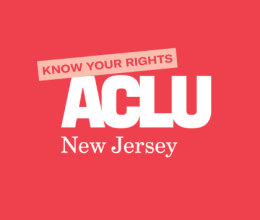
In May of 2011, a 7-Eleven store in Hamilton Township was robbed at gunpoint. Police were notified about the armed robbery and a bulletin concerning the robbery was issued. The bulletin described the suspects as two black males, one with a handgun. Soon after the robbery, a Hamilton Police Officer used a spotlight mounted to his car to illuminate the interiors of passing vehicles as he traveled to the store. In one car, he observed three black men who did not react to the light. The officer stopped the car based on those observations. Once the car was stopped, the officer saw evidence in the back seat that he used to link the occupants to the 7-Eleven robbery and a robbery/murder that occurred a week earlier. Two different appellate courts looked at the case. One found that officers had enough “reasonable articulable suspicion” that the men in the car had robbed the store to pull the car over. The other court disagreed. The Supreme Court agreed to hear both cases.
The New Jersey Supreme Court – like all courts – tends to think about unlawful arrests and searches based on the cases that they review. Of course, criminal courts only see cases when police actually find things as a result of their illegal searches. Judges and justices rarely hear about the cases that we know happen all the time: Black people being pulled over, humiliated and traumatized, and sent on their way. We filed a brief on behalf of 66 Black ministers and other clergy, all of whom have had to provide counsel to victims of racial profiling. Our goal is to have this brief educate the Court about this pervasive reality, and we use the brief to ask the Court to create a rule prohibiting police from stopping cars based only on the race/gender of the occupants.
Our brief explains that if the Court allows police to stop a car of three black men because of a description of a robbery committed by two Black men, they are inviting widespread racial profiling. In fact, even if the description had matched (that is, there were the right number of people in the car), a description limited to race and gender is simply too vague to justify the stop of a car. Where an account describes many more innocent people than it does guilty people, it cannot serve as a basis for the stop. By way of example, although we might allow police to stop a car if the bulletin described “a green convertible” or a “red Prius,” if police were simply told to stop “a blue car” or a “minivan,” we would not because the description is just too vague. We will explain to the Court the grave harms that come from allowing police to stop innocent motorists.

